FAQ
Frequently Asked Questions
Find answers to the most commonly asked questions surrounding licensing (registration), financial supports (bursaries), return of service and immigration.
Find answers to the most commonly asked questions surrounding licensing (registration), financial supports (bursaries), return of service and immigration.
On April 19th, 2022, the Province of British Columbia announced several new strategies that will make it easier for internationally educated nurses to enter the province’s health system. Health Match BC, in partnership with the BC College of Nurses and Midwives (BCCNM), the Inspire Global Assessments/Inspire Évaluations Mondiales (formerly the Nursing Community Assessment Service (NCAS)) and the Provincial Ministry of Health, will support IENs who want to work in BC by consolidating the assessment processes for nurses, offering approximately $9 million in financial support (bursaries) to help with application and assessment fees, and create a new navigation services team to help IENs successfully navigate the licensing process.
Health Match BC is a free recruitment service funded by the Government of British Columbia, Canada. We facilitate the recruitment of nurses, physicians, and allied health professionals on behalf of BC’s publicly funded health employers.
Health Match BC, through its navigation team, will support internationally educated nurses throughout their journey to practice in BC. The team will provide customized support in assisting candidates to navigate their licensing and registration applications. Health Match BC will also provide information and access to financial supports, in the form of bursaries, and guide candidates throughout the immigration process.
Through Health Match BC’s recruitment team, IENs will be supported in accessing career opportunities with BC’s public health employers.
Yes! British Columbia offers a wide range of nursing opportunities in all areas of nursing practice as well as a variety of settings including large urban centres, medium and small cities, and rural and small communities.
The wide range of opportunities enable nurses to find the perfect fit for their professional preferences, career growth, and family needs. Opportunities also exist for career development in acute care (medical/surgical, intensive care unit, operating room, and emergency room) as well as ambulatory care, rehabilitation, long-term care, leadership/administrative, public health, community health and primary care.
Yes, to work in BC as a nurse you must have provisional or practising registration with the BC College of Nurses and Midwives (BCCNM).
The licensing (registration) process in BC can vary depending on an individual’s education, credentials, and experience. All IENs must have their international credentials and English language proficiency assessed, apply to the Inspire Global Assessments/Inspire Évaluations Mondiales (formerly the Nursing Community Assessment Service (NCAS)) and the BC College of Nurses and Midwives (BCCNM).
Some IENs may require a competency assessment and/or transitional education, and successfully complete a registration exam before becoming licensed as a fully practising nurse. Health Match BC’s Navigation team is available to help you understand and navigate the registration process and requirements.
You can apply to BCCNM at the same time as the Inspire Global Assessments/Inspire Évaluations Mondiales (formerly the Nursing Community Assessment Service (NCAS)). IENs are encouraged to visit the BCCNM and Inspire Global Assessments/Inspire Évaluations Mondiales (formerly the Nursing Community Assessment Service (NCAS)) websites in advance to review the application requirements.
During the Inspire Global Assessments/Inspire Évaluations Mondiales (formerly the Nursing Community Assessment Service (NCAS)) application process you may be asked to provide the results from an acceptable English language proficiency test, either the Canadian English Language Benchmark Assessment for Nurses (CELBAN) or International English Language Testing System (IELTS) Academic test. You can learn more about English language requirements here.
Inspire Global Assessments/Inspire Évaluations Mondiales (formerly the Nursing Community Assessment Service (NCAS) is a competency assessment service for nurses and health care assistants seeking licensing (registration) in British Columbia (BC). Inspire Global Assessments/Inspire Évaluations Mondiales (formerly the Nursing Community Assessment Service (NCAS) reviews the IEN applicant’s credential assessment and English language proficiency, and administers a two-part nursing competency assessment (computer-based and simulation-based). This competency assessment evaluates the applicant’s nursing skills, knowledge and practice against competencies required for entry-level practice in BC for each specific nursing (or health care assistant) role.
As nursing education and practice differ from one country to another, most internationally educated nurses need to complete the Inspire Global Assessments/Inspire Évaluations Mondiales (formerly the Nursing Community Assessment Service (NCAS) assessment, before the BC College of Nurses and Midwives (BCCNM) makes a registration decision for a nursing license.
The triple-track assessment will allow internationally educated nurses to have their competencies assessed for three professions – registered nurse, licensed practical nurse and health care assistant – in a single process. In assessing your competency for multiple professions at once, the triple-track assessment can expand your career options and help you find work faster in British Columbia. You can learn more here.
Yes. If you have an active referral as an RN or LPN, you can upgrade to the triple-track assessment by contacting Inspire Global Assessments/Inspire Évaluations Mondiales (formerly the Nursing Community Assessment Service (NCAS)) directly.
The Inspire Global Assessments/Inspire Évaluations Mondiales (formerly the Nursing Community Assessment Service (NCAS)) assessment includes two parts, a Computer-Based Assessment (CBA) and a Simulation Lab Assessment (SLA). For RN (Registered Nurse) and LPN (Licensed Practical Nurse) assessments, the CBA may be completed in a number of Prometric testing centres located in countries around the world. However, the SLA component must be completed in-person in Vancouver, British Columbia, Canada. For RPN (Registered Psychiatric Nurse) assessments, both the CBA and SLA assessments are available via remote proctoring.
An internationally educated nurse will only be referred for a triple track assessment once they have their international credentials assessed through one of the approved credentialling agencies and they meet the English language proficiency requirements set by BCCNM. Inspire Global Assessments/Inspire Évaluations Mondiales (formerly the Nursing Community Assessment Service (NCAS)) will advise the IEN if they meet all the criteria for triple track at this time.
Through Health Match BC, the Province of BC will be supporting internationally educated nurses with financial support, in the form of bursaries, to offset some of the costs of becoming licensed to work in BC.
The available bursaries apply to any Inspire Global Assessments/Inspire Évaluations Mondiales (formerly the Nursing Community Assessment Service (NCAS))-approved Education Credential Assessment (ECA) reports, English language proficiency testing, and educational upgrading required by BCCNM.
Some nurses may qualify for a travel stipend to cover costs associated with travel within BC to the Inspire Global Assessments/Inspire Évaluations Mondiales (formerly the Nursing Community Assessment Service (NCAS)) assessment site in Vancouver, BC.
IENs must commit to a Return of Service (ROS) agreement with the BC Ministry of Health to have their Inspire Global Assessments/Inspire Évaluations Mondiales (formerly the Nursing Community Assessment Service (NCAS)) and BCCNM fees waived.
Additional bursaries (reimbursements) are available to IENs who commit to a Return of service (ROS) agreement and meet the following criteria:
Note: Applicants who choose to pay the Inspire Global Assessments/Inspire Évaluations Mondiales (formerly the Nursing Community Assessment Service (NCAS)) assessment and BCCNM application fees themselves may still apply for bursary reimbursement of these fees at a later date if all the bursary eligibility criteria have been fulfilled.
Eligible IENs are reimbursed for the qualifying costs incurred up to the noted bursary maximum with proof of payment.
Yes, if you currently receive EI, you may still proceed with your bursary application for financial support.
For IENs starting the Inspire Global Assessments/Inspire Évaluations Mondiales (formerly the Nursing Community Assessment Service (NCAS)) and BCCNM process from January 31, 2023 onward, you do not need a SIN to have your Inspire Global Assessments/Inspire Évaluations Mondiales (formerly the Nursing Community Assessment Service (NCAS)) assessment and BCCNM application fees waived.
A valid SIN is not required to apply for the IEN bursary program, but you will need one to receive a bursary payment (reimbursement). If you are not currently residing in Canada and are eligible for the bursaries, you will be reimbursed once you obtain your SIN and Canadian bank account information for direct deposit.
The English Language Test (ELT) bursary is available for up to two (2) attempts of a BCCNM-accepted test, whether an applicant is successful or not. Funding is up to $400 per test and is based on official receipts from a recognized English Language Proficiency Test. Receipts for tests must be dated on or after May 1, 2021.
Costs associated with remedial education that is required to obtain BCCNM registration may be reimbursed up to a maximum of $10,000 on a course by course or semester by semester basis if the costs occurred on or after May 1, 2021.
Eligible costs associated with credential assessment, acceptable English language proficiency testing, Inspire Global Assessments/Inspire Évaluations Mondiales (formerly the Nursing Community Assessment Service (NCAS)), BCCNM application, and costs associated with remedial education required by the BCCNM that an IEN incurred after May 1, 2021, may be eligible for reimbursement as long as the IEN did not obtain BCCNM registration and begin working before May 1, 2022.
IENs who obtained an LPN registration in BC but were hoping to be considered for an RN registration could qualify for financial supports to be assessed against the RN competencies and/or obtain an educational bursary for remedial education to become an RN.
IENs are encouraged to contact the Health Match BC Navigation team if they have additional questions.
Yes, if you have been issued a BCCNM decision letter (e.g., an RN who is asked to take remedial education), you can access both bursaries, Inspire Global Assessments/Inspire Évaluations Mondiales (formerly the Nursing Community Assessment Service (NCAS)) and remedial education.
If you are registered as an LPN in BC and want to start your RN registration process with the BC College of Nurses and Midwives (BCCNM), those costs would be eligible for financial support through bursaries.
The return of service agreement is an agreement between you and the Province of British Columbia that you will commit to complete 12 months of continuous service with a publicly funded health sector employer within BC within six months following receipt of your provisional or full nursing registration from the BCCNM (or registration with the BC Care Aide & Community Health Worker Registry). This ROS is in exchange for accepting financial supports. The ROS period is extended to two years if the IEN obtains employment of 0.5 FTE (part-time) or less, and it will also be extended during absences. The ROS commitment would pause during non-working periods.
Public sector employers include regional health boards designated under section 4(1) of the Health Authorities Act or Provincial Health Services Authority (collectively a “Health Authority”) or Providence Health Care OR at long-term care or assisted living (AL) facility, private or public, as long as the facility is publicly funded. Qualified employers EXCLUDE contract agencies supplying temporary and/or short-term staffing solutions to eligible facilities.
If you cannot complete your return of service and voluntarily leave your Qualifying Employer(s) during the ROS Period, you will be required to repay the Province the amount of the bursary that is proportional to the percentage of the ROS Period that has not been completed.
No, employment with any publicly funded health employer within BC will qualify for your return of service.
There are many job opportunities available across the province. Health Match BC will provide assistance in finding a suitable position, and you are required to make your best effort to find a suitable position.
If six months has elapsed since licensure or registration and you are still unable to secure employment to meet the ROS requirements, please contact healthbursaries@gov.bc.ca.
Yes, however, if you resign from your job with a Qualifying Employer(s) during the ROS Period, you will need to provide at least two weeks advance notification from your end date.
You can concurrently hold and work in multiple qualifying part-time positions; however, casual employment does not fulfill the requirements for the ROS.
The FTE for each Qualifying Position will be added together to calculate the FTE.
If your position is 0.5 FTE (part-time) or less, your ROS period will be extended to 2 years.
Yes, however, your return of service period will be extended if a leave of absence is greater than 20 days (other than authorized vacation from the employer).
No, you must complete your return of service with a publicly funded health employer within BC and repay the proportionate amount of the bursary based on the remaining time left on your ROS.
Yes, upon completion of the ROS Period, you will need to submit a letter to the province from your employer(s) confirming the ROS Period has been completed in full using the Return of Service Fulfillment Confirmation Form. For more information, please contact the Province at healthbursaries@gov.bc.ca.
Yes, however, you would normally require a BC nursing license prior to being accepted into the program. You must also meet the eligibility requirements of the program. This includes:
No. Health Match BC is not a legal representative for the BC PNP. Authorized representatives are immigration consultants who are full members in good standing with the Immigration Consultants of Canada Regulatory Council, or lawyers who are members in good standing with the Law Society of BC or another law society in Canada. To apply to the BC PNP, you do not have to use an immigration consultant or lawyer.
The BC PNP reviews all applications equally, regardless of whether they were prepared with the assistance of a representative. Your application will not receive special attention or faster processing if it was completed using the services of a representative.
You should start your application as soon as you accept a formal job offer with a sponsoring publicly funded health employer within BC.
Yes. As part of your permanent residency application to Immigration, Refugees and Citizenship Canada (IRCC), you will include information about your spouse and any dependent children.
No. A nomination by the BC PNP does not allow you to work. You must apply and obtain a temporary work permit from Immigration, Refugees and Citizenship Canada (IRCC). BC PNP does not apply for a work permit on your behalf.
Further information about immigration options are available online through the Government of Canada website.
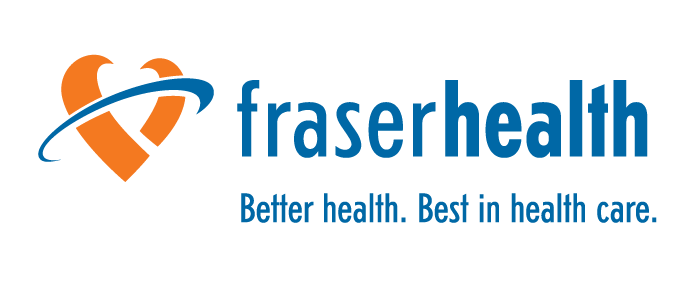
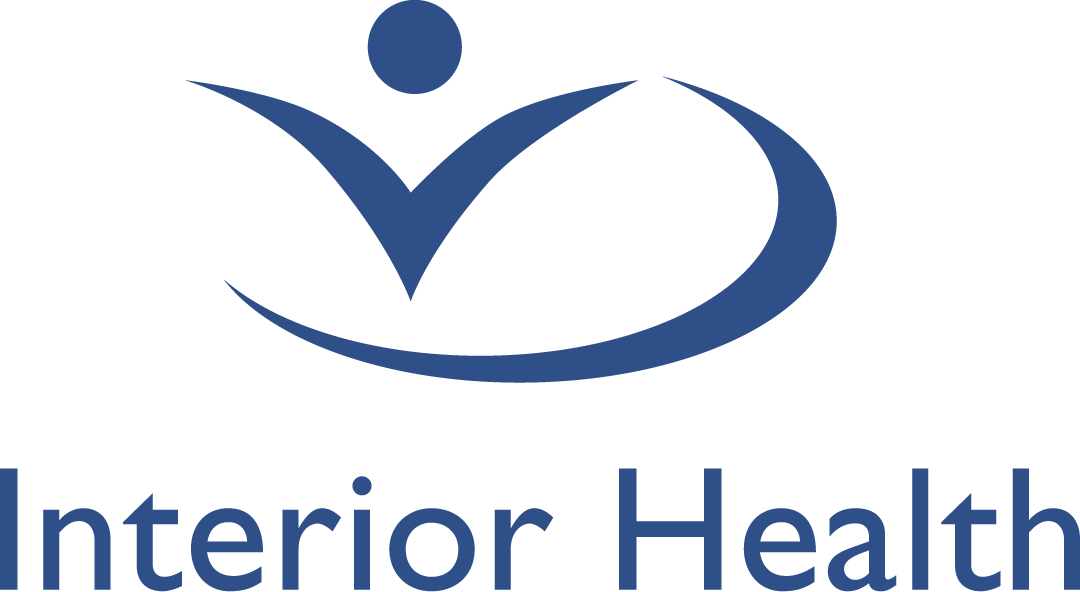
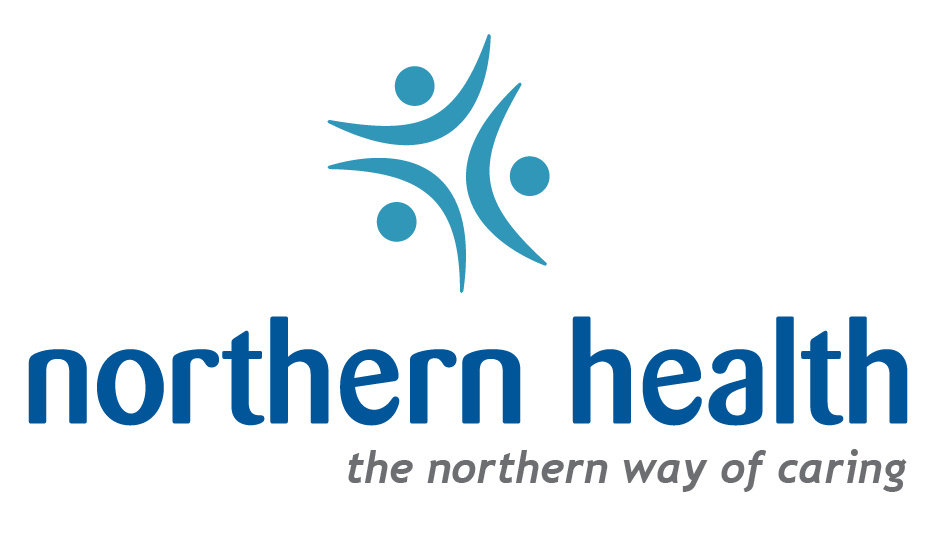

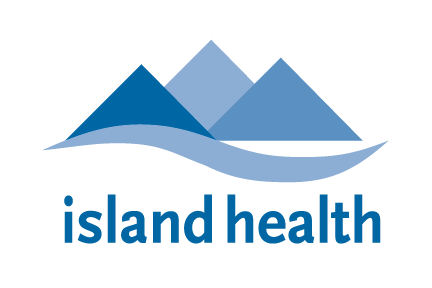
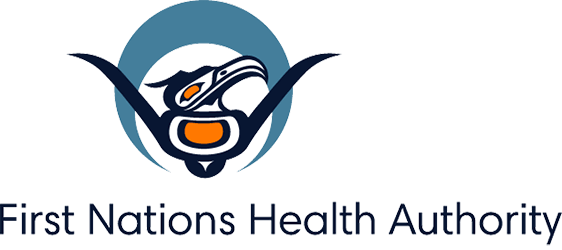



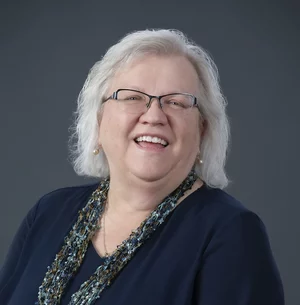
Angela returned to the North Peace in 1997. Her experience includes working as the NE Chief Operating Officer, Health Services Administrator for the North Peace, while working as the Operational Lead for acute care planning and transition during the development of the new Fort St. John Hospital and Peace Villa facility. She also held the positions of Director of Patient Care Services and Inpatient Unit Manager at the Fort St. John Hospital and Health Centre. She has interprovincial experience in nursing leadership positions in Alberta as well in both Peace River Hospital and Community Health Centre, and the High Level Hospital. Angela has represented Northern Health on a number of provincial committees including the 2019 and 2023 NBA Bargaining Committees.
Angela graduated from the University of Alberta Hospital School of Nursing, obtained her Bachelor of Nursing from Athabasca University; and graduated from Royal Roads University with a Masters of Leadership in Health Care.
Angela has embraced the opportunities to lead and participate system changes in Northern rural and remote communities in the BC and AB health care system.

Aneta D’Angelo obtained her Bachelor’s degree in Nursing and a Master’s degree in Education from University of Windsor, Ontario – degrees which showcase her dedication to both healthcare and education. With over 23 years of nursing experience, 13 of which were dedicated to progressive leadership, Aneta brings a wealth of knowledge to her current role within the Professional Practice Office of Interior Health Authority (British Columbia, Canada).
In Aneta’s current role as the Director of Education, she oversees a wide range of responsibilities, including programs that support internationally trained nurses, employed student nurses, specialty education, new graduate transition to practice, clinical mentorship, and preceptorship. One of her most recent achievements is the expansion of the Clinical Education Portfolio under her leadership. Aneta has transformed the department, growing it from 7.0 direct reports and 120 employed students to an impressive 56.0 reports and over 520 employed students. Her strategic vision and dedication have been pivotal in achieving this significant milestone.
Aneta has also imparted her expertise at the post-secondary level, having taught at institutions such as the University of British Columbia and Okanagan College in the Bachelor of Nursing Program. In alignment with her passion for education and high standards in practice, her dedication extends to the regulatory level, with experience providing provincial consultation and where she still currently serves on the Nursing Program Recognition Committee with the British Columbia College of Nurses and Midwives.
Aneta’s dedication to quality health care environments and sharing successes broadly, has also led to provincial interest and eventual adoption of many clinical education solutions such as the New Graduate program. She is provincially known as a trailblazing healthcare leader who has made substantial contributions to the field of clinical education and nursing practice in British Columbia. Her impressive career journey and commitment to excellence continue to inspire those around her.

Shannon joined the Health Match BC Nurse Recruitment Team in the spring of 2022 as a Recruitment Consultant. She enjoys working with candidates from around the world and loves nothing more than supporting her applicants in finding exactly the right job opportunity in beautiful British Columbia.
With over a decade of recruitment experience in both health care and post secondary, Shannon prides herself on providing her candidates with resources and supports for their individual needs in starting their journey to becoming a nurse in British Columbia.
Born and raised in British Columbia, Shannon loves nothing more then sharing with others the beautiful part of the world she lives in! You can always count on her to point you in the right direction of the best cup of coffee in town! Outside of work Shannon can be found exploring all the best BC has to offer with her little family!

Chadi is one of the Navigators at Health Match BC, supporting internationally educated nurses on their journey to becoming registered in BC. She has a background in Psychology, and for the last 4 years, has been working with health care professionals, providing them with information on the registration process, supporting their job search efforts, and guiding them with their immigration applications. Chadi believes everyone should have the opportunity to work in their chosen career and endeavours to support them in any way she can to achieve their dream to work in BC.

David began his healthcare career by graduating from Oxford Brookes University with a Bachelor of Arts in Paediatric Nursing (1993). To specialize in Critical Care, he transitioned to the John Radcliffe Hospital’s Pediatric Intensive Care Unit and obtained specialty certification at Great Ormond Street Hospital, London. Keen to develop advanced competence in the speciality of Paediatric Critical Care and extend his scope of practice, David undertook his Master of Science degree in Autonomous Healthcare Practice, graduating in 2005.l
A move to Vancouver in 2006 brought David to BC Children’s Hospital where he has further honed his leadership skills as a clinician, Operations Leader, and Clinical Leader for functional design for Redevelopment & now as a Leader in Professional Practice for BC Women’s & BC Children’s Hospitals.
His goal is to support Best Care in partnership with Women, Children & their families by enabling engaged & competent teams to deliver quality outcomes and positive patient and family experiences.
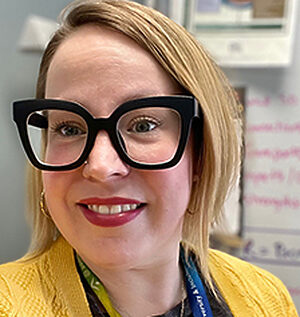
Michael-Ann traded in the amenities and anonymity of big city life to move to a small community over a decade ago. Her husband stayed home with the kids, and she got a job in a little hospital nestled deep in the ponderosa pines of the Interior of British Columbia, Canada. Filled with unique challenges and benefits she has developed a comprehensive skill set and autonomous practice working in a rural Emergency Department. She now acts as a voice for rural nurses, serving on the executive for the Canadian Association for Rural and Remote Nursing. In addition, Michael-Ann furthered her career to become a leader and mentor to many nurses through her role as a clinical operations manager. When she is not working, she is playing with her kids, making art, or doing the dishes. Living and working in rural BC was the best decision she ever made to grow both her career and her family, and she is excited to share this experience with the United Kingdom.
Michael-Ann looks forward to speaking with you in London and Dublin.
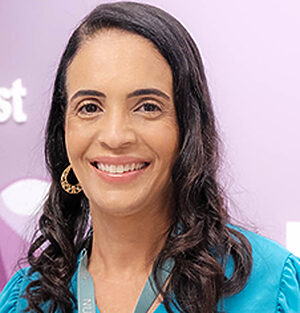
Flávia is from Brazil and got her bachelor’s in Science in Nursing from the Universidade of Brasilia. She is one of the Internationally Educated Nurses featured in the Health Match BC video (insert link if you have it). While attending an International Nursing Conference for a week in Vancouver in 1997, she fell in love with the city and started the process to revalidate her nursing credentials in British Columbia.
She moved to Vancouver in 2000 and after working 17 years in St Paul’s Hospital in Vancouver, she got her master’s in leadership for healthcare. She is currently working as a Director of Specialized Paediatric Medical Services at BC Children’s Hospital, where she has been for the last 4 and half years. Flávia lives in Vancouver with her husband, their two children, and a dog. She is so grateful for this diverse and inclusive country that provided so many opportunities for growing as a nurse and as a leader.
Passionate about recruiting other Internationally Educated Nurses, she is excited to join Health Match BC in the UK & Ireland Roadshow. Come and chat with Flávia in London and Dublin.”
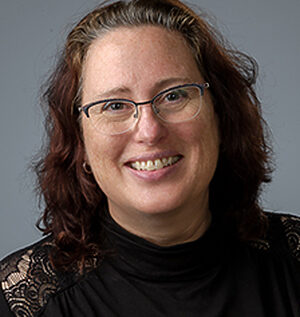
Lisa has recently started in a newly created position in BC as the Diabetes Clinical Nurse Specialist for Providence Healthcare. She brings 34 years of nursing experience with a variety of areas including renal transplant, critical care, cardiovascular, to name a few.
She’s been a Certified Diabetes Educator since 2004 and a Diabetes Clinical Nurse Specialist for Hamilton Health Sciences in Ontario with focus on diabetes management in the in-patient setting since 2011. The scope of practice for this Advanced Practice Nursing role included providing expert consultation to Prescribers and devising the plan of care for patients admitted to hospital, quality improvement projects, leadership, education, and research.
She’s also been an Associate Clinical Professor with McMaster University School of Nursing in Hamilton, Ontario from 2008 – 2021 and looks forward to joining Faculty at University of British Columbia this year.
You can speak with Lisa in Manchester and Birmingham

Born in Inverness in the highlands of Scotland and raised in the Northeast in a town called Elgin. He started his career in healthcare as a nursing assistant before Graduating as a Registered Mental Nurse (RMN) at Stirling University. He honed his skills as a Staff nurse in acute psychiatry and as a Community Psychiatric Nurse before emigrating with his family to Northern BC in 2004.
Davey has been fortunate enough to have been supported by the employer to develop into leadership opportunities within the health Authority, that have allowed him to establish the role he currently occupies as the Regional manager for Clinical Education and development for all areas of clinical patient care.
The original plan was to emigrate for 2 years before return home, however the work/life balance that he experienced has enabled him to work, live and play in one of the most beautiful areas in the world.
Come meet Davey in Manchester and Birmingham
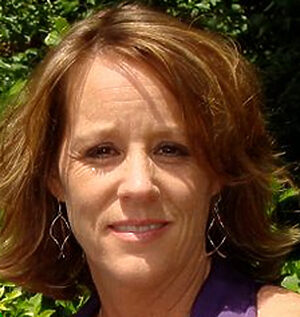
Julie has worked in Fraser Health as a nurse for over 30 years mostly in the Emergency Department (ED) and now as a Leader with Talent Acquisition and Onboarding with a continued focus on ED recruitment. Julie has been involved in many creative initiatives and solutions for nursing recruitment and retention and onboarding for new hospital redevelopment.
Julie has always lived in British Columbia (BC) and experiences the best of what BC offers… summers spent in the interior lakes of the province and the rest of the year at the beach.

Bonnie Catlin is the Regional Director for Clinical Education & Professional Practice-, Nursing, at Vancouver Coastal Health (VCH). Her focus is building multiple regional education initiatives for nurses to support transition from student to employed student nurse, to new graduate, simulation to support development of new and ongoing clinical competencies, standardizing orientation and supporting the development of a remote and rural education. Increasing clinical placement access within VCH, building new educator infrastructure and increasing professional development for current educators. Leading the process for the development of clinical decision support tools that are guided by our provincial regulatory college.
In previous role, she was the Provincial Heart Failure Clinical Nurse Specialist and Provincial Clinical Director for the Heart Failure, Transcatheter Heart Valve (THV) and Left Atrial Appendage (LAA) Program in Vancouver British Columbia. She co-lead BC’s Heart Failure Strategy, working with provincial HF experts and patients to establish standardized provincial patient and interprofessional HF education programs, standardized medical imaging referral processes, building culturally specific practice tools and resources, and established, the first in Canada, HF End- of- life program. Within the THV and LAA programs, she worked with provincial stakeholders and to build a system of care across the full care continuum to improve clinical practice, access, quality and patient knowledge.
Her nursing practice over the last 39 years has focused primarily on cardiology & nursing education, with experience at point of care, health care administration, cardiac research, and professional practice, leading practice and system change both regionally and provincially. Bonnie received her BSN from the University of Victoria and her MScN from York University in Toronto.